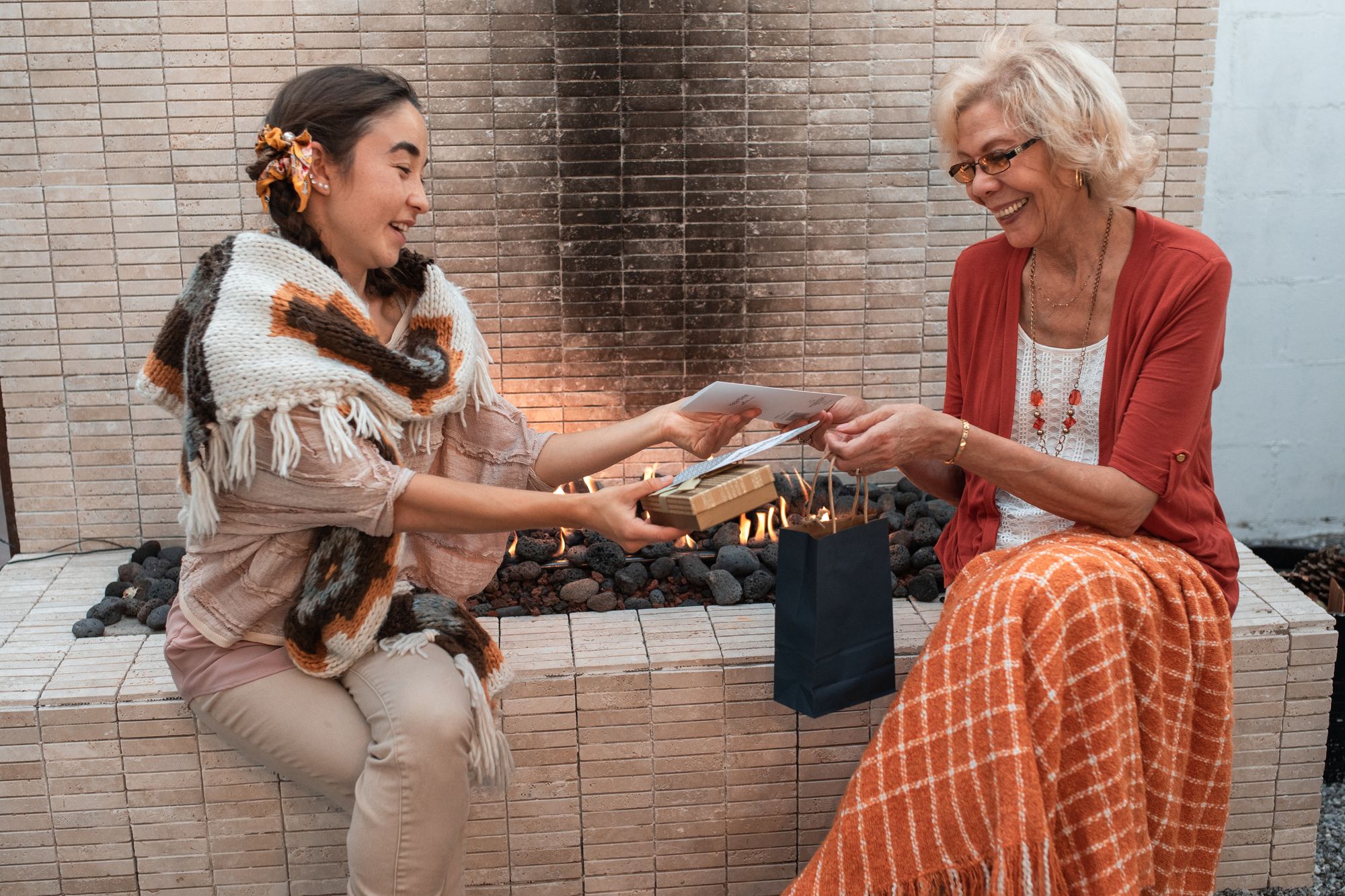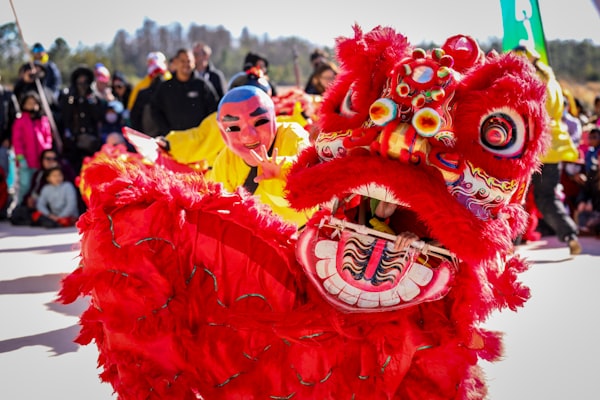Giving gifts is one of the most enjoyable parts of Christmas, but have you ever wondered why we do it? There are a few different theories out there, and we've compiled some of the most interesting ones for you. To find out more about the history of gift giving at Christmas time!
The history of gift giving in the Western world
The act of giving gifts is a time-honored tradition that dates back centuries. While the specific origins of gift giving are unknown, it's safe to say that the practice is deeply ingrained in many cultures around the world. In the Western world, gift giving has long been associated with religious holidays such as Christmas and Hanukkah. However, over time, the practice has evolved to include other occasions such as birthdays, weddings, and anniversaries.
One of the earliest recorded instances of gift giving in the Western world took place during the Roman festival of Saturnalia. This week-long celebration honoring the god Saturn was held every year from December 17-23. During Saturnalia, businesses would close, slaves were given a temporary reprieve from their duties, and people exchanged gifts with one another.
The tradition of gift giving continued throughout the Middle Ages and into the Renaissance period. It was during this time that many of the modern traditions associated with gift giving began to take shape. For example, it became customary to give gifts on Christmas Eve rather than on Christmas Day itself. Another popular tradition during this era was to give gifts that had a hidden meaning or symbolism behind them. For instance, a clock might be given as a symbol of time running out or an hourglass as a reminder of mortality.
As we entered into the modern era, gift giving became less about religious holiday and more about personal occasions such as birthdays and anniversaries. This shift was likely due in part to the increasing secularization of society. Today, gift giving is widely practiced around the world and has become an important part of many people's lives.
Disclaimer: We are a participant in the Amazon Services LLC Associates Program. We are also an Affiliate for other Companies and may earn a commission for purchases made thru some of our links.
The Three Different Theories of Christmas Gift Giving
Blog Introduction: If you've ever wondered why we give gifts at Christmas time, you're not alone. The tradition of gift giving has been around for centuries, and there are a few different theories about its origins. In this blog post, we'll explore three of the most popular theories about Christmas gift giving so that you can make up your own mind about where this tradition comes from.
Theory #1: The Tradition Began with the Three Wise Men
One popular theory is that the tradition of giving gifts at Christmas began with the story of the three wise men, also known as the Magi. According to the Bible, the Magi were wise men from the East who followed a star to Bethlehem, where they presented baby Jesus with gifts of gold, frankincense, and myrrh.
While this is a lovely story, there's no evidence that the Magi actually gave gifts to Jesus on the day of his birth. In fact, most scholars believe that the story of the Magi was added to the Bible much later on. Nevertheless, the story of the three wise men is a popular one, and it's easy to see how it could have inspired the tradition of giving gifts at Christmas time.
Theory #2: The Tradition Began as a Pagan Ritual
Another theory is that the tradition of giving gifts at Christmas time actually began as a pagan ritual. Before Christianity became the dominant religion in Europe, pagans celebrated a winter festival called Yule. As part of their celebrations, they would exchange gifts with one another.
When Christianity began to spread through Europe, Christians tried to stamp out pagan traditions like Yule. However, they quickly realized that it was easier to incorporate pagan traditions into Christianity than to get rid of them entirely. As a result, many pagan traditions including gift giving at Christmas time became part of Christian tradition.
Theory #3: The Tradition Began as a Way to Remember St. Nicholas
The third and final theory is that gift giving at Christmas time began as a way to remember St. Nicholas a Christian saint who was known for his generosity towards children. According to legend, St. Nicholas would sneak into homes and leave coins in shoes or stockings that had been hung by the fireplace to dry.
Over time, stories about St. Nicholas evolved and he became known as Santa Claus the jolly old man in red who brings presents to children on Christmas Eve. While Santa Claus is now more myth than reality, it's easy to see how he could have inspired the tradition of giving gifts at Christmas time. After all, what could be more festive than receiving a present from Santa Claus himself?
What gifts mean to different cultures?
Blog Introduction: Giving and receiving gifts is a common practice in many cultures around the world. But what do gifts mean to different cultures? In some cultures, gifts are given to show appreciation or as a gesture of goodwill. In other cultures, gifts are seen as a way to build relationships or express love. Let's take a look at how gift-giving varies from culture to culture.
Gift-Giving in American Culture
In American culture, gifts are often given to show appreciation or gratitude. For example, you might give a gift to your boss to show your appreciation for their mentorship, or you might give a gift to a friend who has helped you through a difficult time. Gifts are also given as a way to show love and affection. Parents might give their children gifts on special occasions, such as birthdays or holidays, to express their love for them.
Gift-Giving in Chinese Culture
In Chinese culture, gifts are often given as a way to build relationships. For example, it is common for businesses to exchange gifts with potential partners as a way of showing goodwill and building rapport. Gifts are also given to express gratitude or thanks. For example, you might give a gift to your child's teacher at the end of the school year to express your appreciation for their hard work.
Gift-Giving in Japanese Culture
In Japanese culture, gifts are often given as a way to express love and affection. For example, parents might give their children gifts on special occasions such as birthdays or holidays. Gifts are also given as a way to show appreciation or gratitude. For example, you might give a gift to your boss at the end of the year to express your appreciation for their mentorship.

Different Types of Gifts People May Give
Have you ever stopped to think about the different types of gifts people give? Some are given out of love, some are given out of obligation, and some are given with ulterior motives. Read on to learn more about the different types of gifts and what they say about the giver.
Gifts Given Out of Love
These are perhaps the most special kinds of gifts, because they're given without any expectation of anything in return. They're simply given because the giver cares about the recipient and wants to make them happy. These gifts can be big or small, expensive or inexpensive, but they'll always be meaningful because they come from the heart.
Gifts Given Out of Obligation
These gifts are given because it's expected of the giver, not because they necessarily want to. For example, you might give a gift to your boss or your in-laws out of obligation rather than because you actually enjoy their company. These gifts are often impersonal and generic, like a gift card or a fruit basket.
Gifts Given With Ulterior Motives
These are the kinds of gifts that are given with the hope of getting something in return. For example, you might buy your child an expensive toy in the hope that they'll finally start doing their chores without being asked. Or you might buy your partner a lavish gift in the hope that they'll take you on a nice vacation. Whatever the ulterior motive may be, it's always transparent to the recipient!
Conclusion
There are a few different reasons, why we exchange gifts at Christmas some are related to symbolism and religion. That’s why some people give gifts at Christmas as a way of honoring Jesus Christ and his teachings about love and generosity. What do you think is the best reason for exchanging gifts at Christmas? Let us know in the comments!
Merry Christmas!











